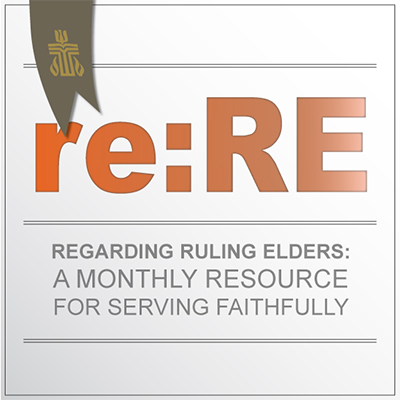I have a pair of “block-out glasses” that were given to me as a gag gift. When you put them on for a photo, your eyes (and ostensibly your identity) are concealed from the camera, protecting you and your reputation from the disgrace of being identified in a compromising setting or unfortunate moment. My glasses are just for playful effect, but they mimic the actual device employed in television programming and magazines to conceal the identities of well-known people behaving badly.
There have been times when I wished the Christian church could conceal its identity. When we fail to be the church or rise to the occasion. When we do or say things that are contrary to the gospel of Jesus Christ. When we stand idly by and allow evil to reign. When we ourselves are complicit or, worse yet, participants in the stories—old and new—of oppression, injustice, and faithlessness. It’s times like those that I wish we could just put on the block-out glasses and not be associated with our bad behavior.
Back in 1992, at or near the height of our denomination’s struggle over ordination standards, the 204th General Assembly (1992) approved a tool to help Presbyterians behave better. It was a resource that helped us remain faithful to our Christian identity and practice while we struggled amongst ourselves over hard topics. It was developed in response to requests from Presbyterian congregations experiencing pain and brokenness and was aptly named Seeking to Be Faithful Together: Guidelines for Presbyterians During Times of Disagreement. The assembly used it that year with success and then commended it to the whole church. Since then, the “guidelines” have become renowned for their practical utility and sage wisdom. Instead of being a “one and done” tool for a particular time and place, the guidelines have been stashed away in the proverbial Presbyterian toolbox and used over the decades for job upon job. After all, there is always something about which Presbyterians can and do disagree.
We’ve all been there. In those church meetings in which tempers flare, pulses quicken, voices raise, fists pound, and things get awkward, uncomfortable, and maybe even ugly. I once experienced a ruling elder wad up a sheet of paper, throw it across the room, offer some choice words, and storm out the door. It’s times like these when we are not at our best, and we know it. The guidelines help us to be our best. Instead of reaching for the block-out glasses after the damage is done, grab the guidelines as a training tool to shape the way we interact.
They are simple, straightforward, and sensible, which may explain their staying power and effectiveness. Better yet, they are biblically based and theologically sound, organized around the following three biblical principles:
Give them a hearing … listen before we answer. (John 7:51 and Proverbs 18:13)
Speak the truth in love. (Ephesians 4:15)
Maintain the unity of the spirit in the bond of peace. (Ephesians 4:3)
Within this framework of hearing, speaking, and maintaining unity, the guidelines provide best practices and sound skill development for those seeking to become more faithful as a result of conflict, rather than less. They assist those, like yourselves, called “… to further the peace, unity, and purity of the church” (Book of Order, W-4.0404g).
As ruling elders, there will no doubt be some hard conversations and difficult topics to address during the term of service in church leadership. Our world seems to be full of tough topics. The church needs to consider the hard stuff, even, and especially if, we are not of one mind. And church leaders need to be ready for the small stuff as well, because we’ve been known to sweat that too (like carpet and paint colors). The guidelines will help you. Use the link below to print them and then “bind them upon your heart, tie them around your neck,” take them to your meetings, put them in your pocket. Speaking of which, the Presbyterian Peacemaking Program has even produced a pocket-size version of the guidelines. Short, sweet, and to-the-point. You will never be without them and, with them, you won’t need those block-out glasses.
Download “Seeking to Be Faithful Together: Guidelines for Presbyterians During Times of Disagreement” here. The pocket guides are also available for purchase in packs of 25 from The PC(USA) Store.
Carl Horton is a PC(USA) teaching elder and is coordinator of the Presbyterian Peacemaking Program in the Presbyterian Mission Agency. He has served congregations in California, Nebraska, and Kentucky, and currently serves as president of the Association of Presbyterian Church Educators (APCE).

